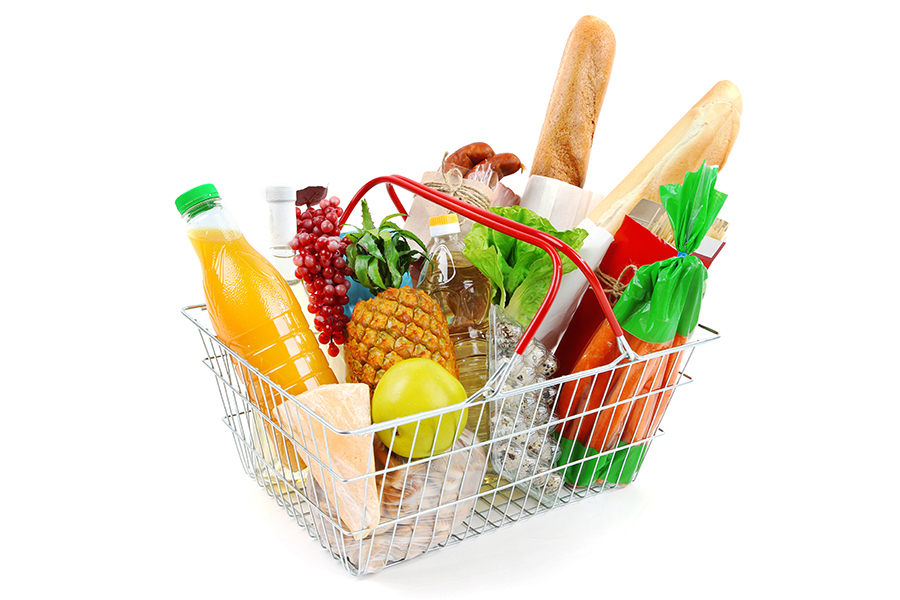
Plastic food packaging: simply awful, or is it more complicated?
Why is food sold in packaging? Do we really need it? And if so, what materials are best? These questions are more complex than they seem and the…

Ready to bring circular economy concepts to your classroom and teach your students hands-on STEM and digital skills? Explore Girls Go Circular!
Editor’s Note: Girls Go Circular has changed its name to Girls Go STEM.
Girls Go Circular is an education programme helping students develop essential digital, entrepreneurial, and sustainability skills to prepare them for the future of work.
Even though it is called Girls Go Circular, the programme is open to all students. The name reflects a commitment to addressing gender gaps in STEM and giving girls the tools and confidence to see themselves as future scientists, engineers, and innovators.
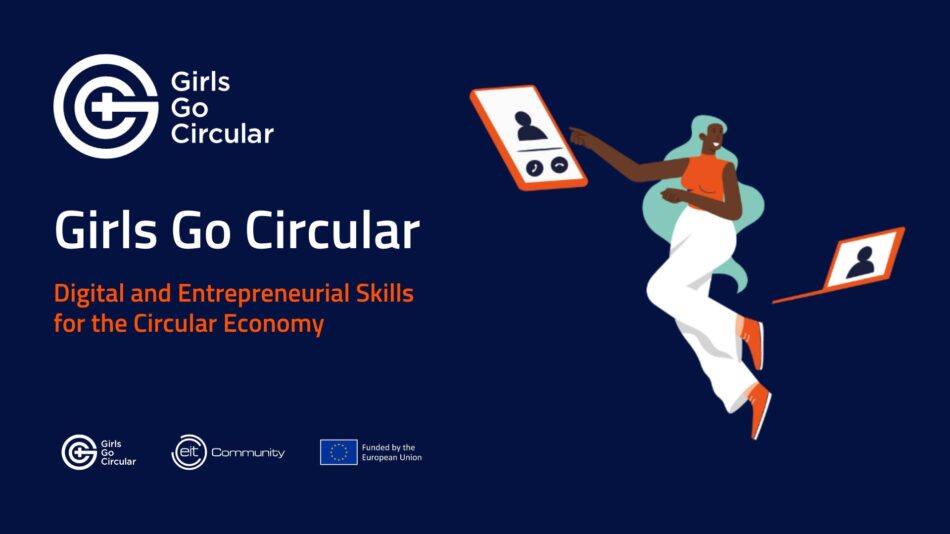
Launched in 2020, Girls Go Circular supports the European Commission’s Digital Education Action Plan[1] and aligns with the New European Innovation Agenda[2] through the European Institute of Innovation and Technology (EIT) Deep Tech Talent Initiative, integrating cutting-edge technology topics into learning. Since 2020, Girls Go Circular has reached more than 87 000 students in over 35 countries.
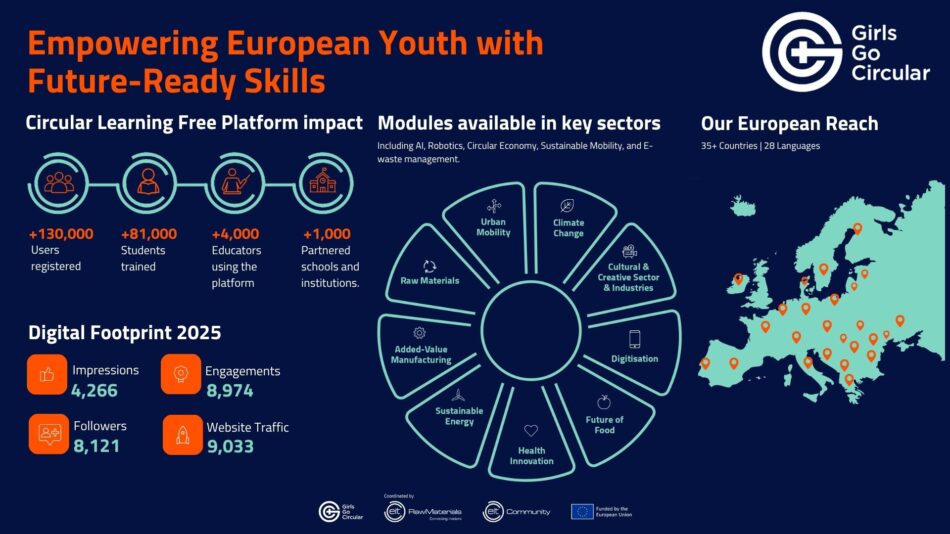
At the heart of the programme is the Circular Learning Space. It is a free online platform offering interactive modules focused on STEM and circular economy topics for students, and supportive materials for teachers. The platform is available in 24 languages and is free to use, but access to the content requires registration to ensure that the features work correctly in the classroom.
If you register as a teacher, you will have teacher’s access to materials and courses. In addition, upon registration, you will receive a unique school code that you can use to create a class on the platform, enrol your students there, and follow their learning progress. Independent educators can request access by emailing girlsgocircular@eitrawmaterials.eu. Independent learners are also welcome to use the content; just fill the short sign-up form. Full instructions are available under the Registration Guidelines section on the platform’s login page.
The online courses offered through Circular Learning Space are designed to inspire and engage students aged 14 to 19 with real-world challenges and concepts.
Each Foundation Course consists of one hour of Content Learning and a two-hour Skills Challenge intended to be completed in groups in a classroom setting. In the Content Learning part, students are introduced to core concepts and relevant information. The Challenge part is designed as ‘explorative’ learning, where students actively engage with real-world problems and apply what they have learned to solve practical tasks. Depending on the course, in Challenges students may engage in active analysis, design, coding, creating prototypes, mapping local industries, pitching ideas, creating impact scoreboards, and many other activities. Digital and entrepreneurial skills lie in the core of Challenge design.
The advanced courses follows the same structure, only there are two hours of Content Learning and three hours of Skills Challenge. Currently there are 19 courses, covering a variety of topics: e-waste management, circular fashion, robotics, semiconductors, circular healthcare, and many others. You can check out the existing courses in the Teacher Guidebook.
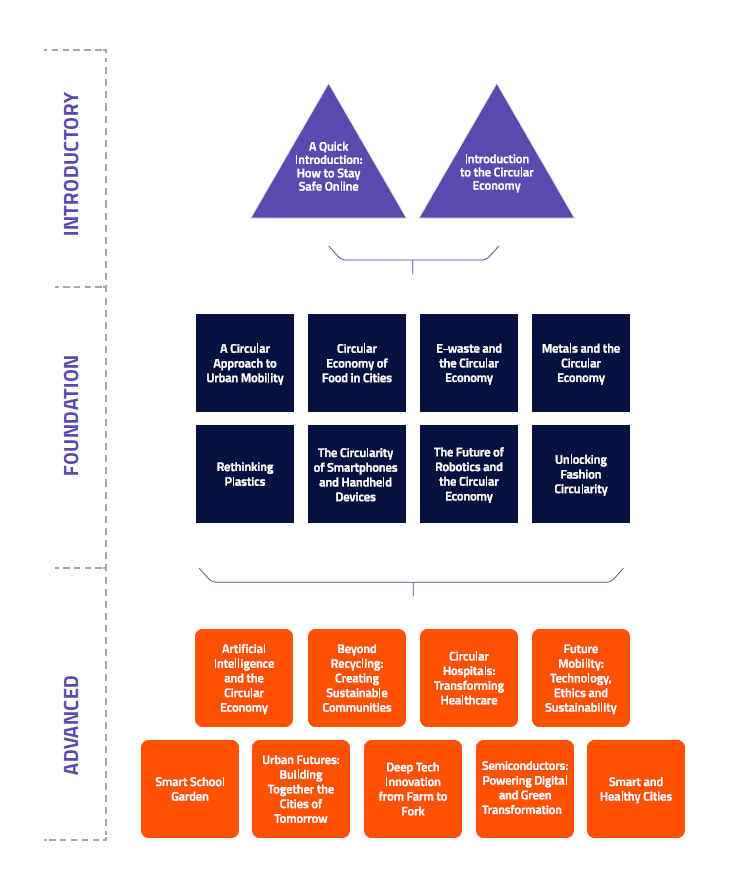
As an example of what the courses entail, the E-waste and the Circular Economy course is described below.
This course tackles the issue of e-waste. It is a foundation course, which means that it consists of an hour of structured learning (content) and offers a two-hour hands-on skills challenge intended to be completed in groups in a classroom setting. The content part covers the concept of e-waste and e-waste categories, environmental and health impacts of e-waste, the concept of ‘right to repair’, digital product passports, and existing strategies for e-waste management.
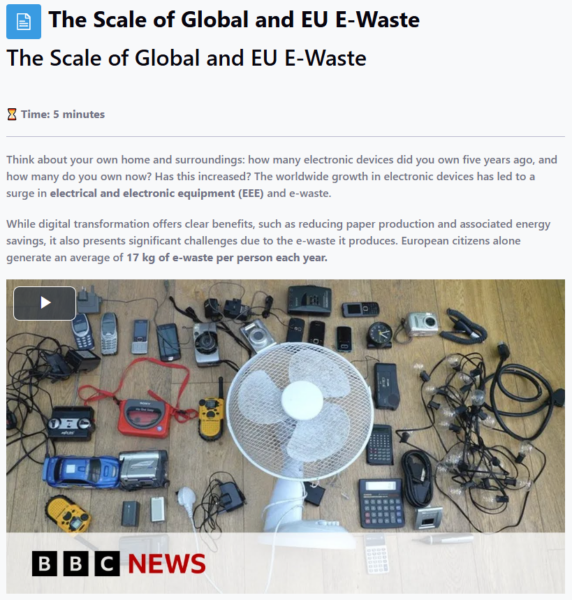
The skills challenge is designed in four units, each 30 min long. Students select a product to study and develop a canvas showing the production journey of three materials that form part of their selected product, focusing on environmental impact factors, such as distance travelled. By sharing findings with their peers, students gain a deeper understanding of how to undertake a life-cycle assessment of everyday products. Students will also develop their ethical and sustainable thinking, and enhance their ability to browse, search, and filter data and to develop digital content.
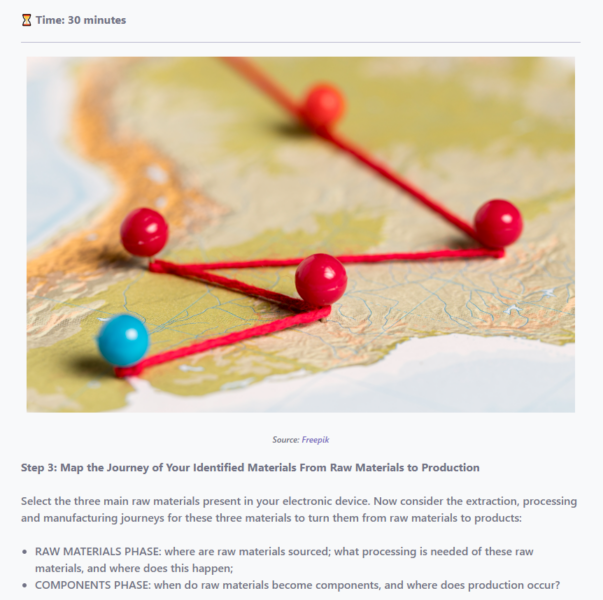
The flexibility of the platform allows educators to integrate the content and challenges into existing teaching practices with ease. Teachers can use the platform as a core part of the curriculum, as supplementary lessons, or for homework assignments. Due to their multidisciplinary nature, the courses align with many key school subjects, for example science (Semiconductors, E-waste), geography (Smart & Healthy Cities, Circular Economy of Food in Cities), ICT (Artificial Intelligence and the Circular Economy, Robotics), social studies (A Circular approach to Urban mobility), and business studies (Unlocking Fashion Circularity, Deep Tech Innovation from Farm to Fork). The courses have also been used by language teachers.
The platform provides Teacher’s notes and Guidebooks that are designed to provide practical advice and ease the planning and execution of in-class activities.
Girls Go Circular is more than just a learning platform. It’s a community that celebrates learning, innovation, and diversity and is active both on- and offline.
Each year, Girls Go Circular co-organizes the Women and Girls in STEM Forum alongside the EIT Community and the European Commission. The Forum brings together students, educators, policy makers, and industry leaders to share experiences and inspire one another.
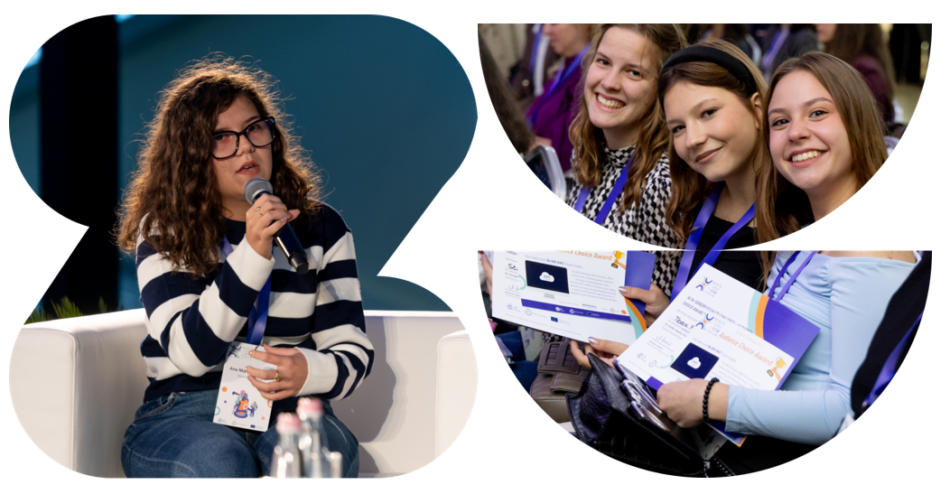
At the heart of the Forum is the Student Challenge, where students team up to solve a real-world problem tied to the Forum’s theme. Finalists pitch their ideas live on stage and receive mentorship from industry experts. To participate, students must complete at least two courses on the Circular Learning Space. You can watch past highlights and student pitches on our YouTube channel.
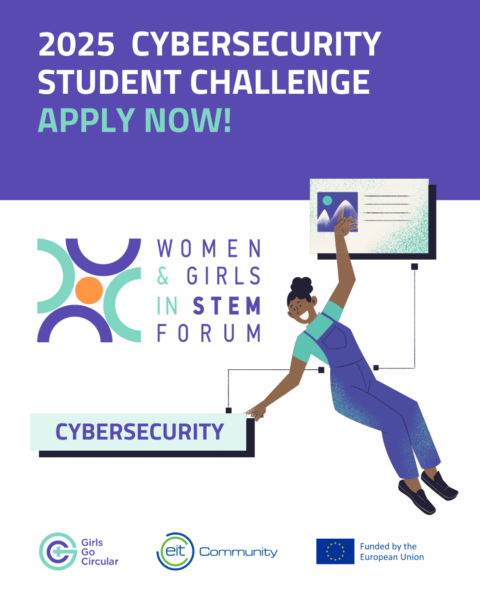
Your contribution as teachers and educators is essential in equipping students with digital and entrepreneurial skills and preparing them to thrive in the careers of the future. Join Girls go Circular to help them on their way.
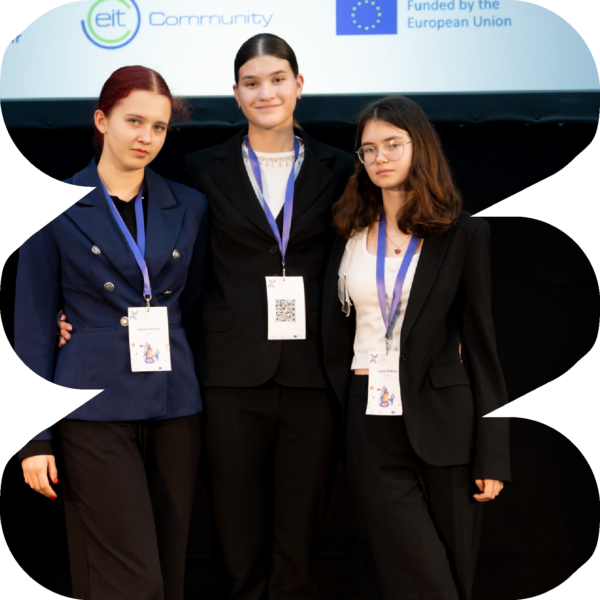
For additional information, you can look through the Teacher Guidebook, a comprehensive resource that can be accessed without registration. It gives an overview of the courses and offers guidance and examples. Once you register, you can explore the online courses for free at www.circularlearningspace.eu. Don’t hesitate to send us your feedback, ideas, and suggestions via the contact form.
Girls Go Circular is coordinated by the European Institute of Innovation and Technology (EIT) RawMaterials and supported by the EIT Community and European Commission.
[1] Read about the Digital Education Action Plan: https://ec.europa.eu/education/education-in-the-eu/digital-education-action-plan_en
[2] Learn about the New European Innovation Agenda: https://research-and-innovation.ec.europa.eu/strategy/support-policy-making/shaping-eu-research-and-innovation-policy/new-european-innovation-agenda_en

Why is food sold in packaging? Do we really need it? And if so, what materials are best? These questions are more complex than they seem and the…
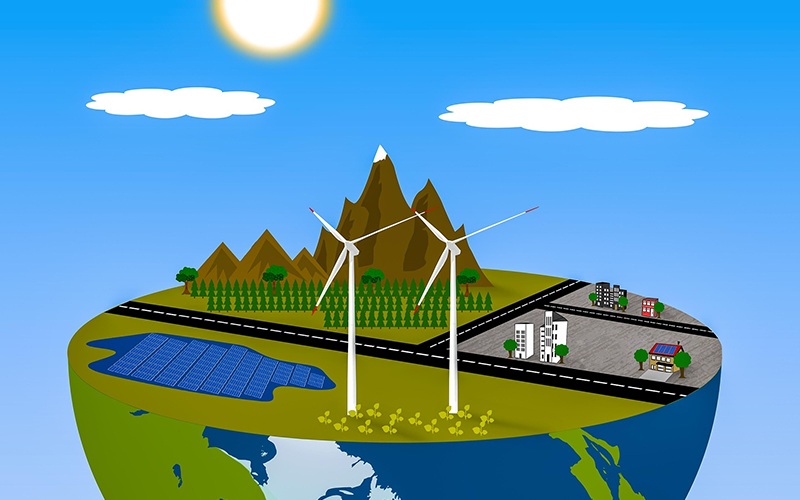
Strengthen knowledge in the subjects of energy supply, grid load, and data evaluation, while using 21st century skills in a fun way.

When talking of finite resources, the chemical elements themselves are often overlooked. Learn more about elements in…